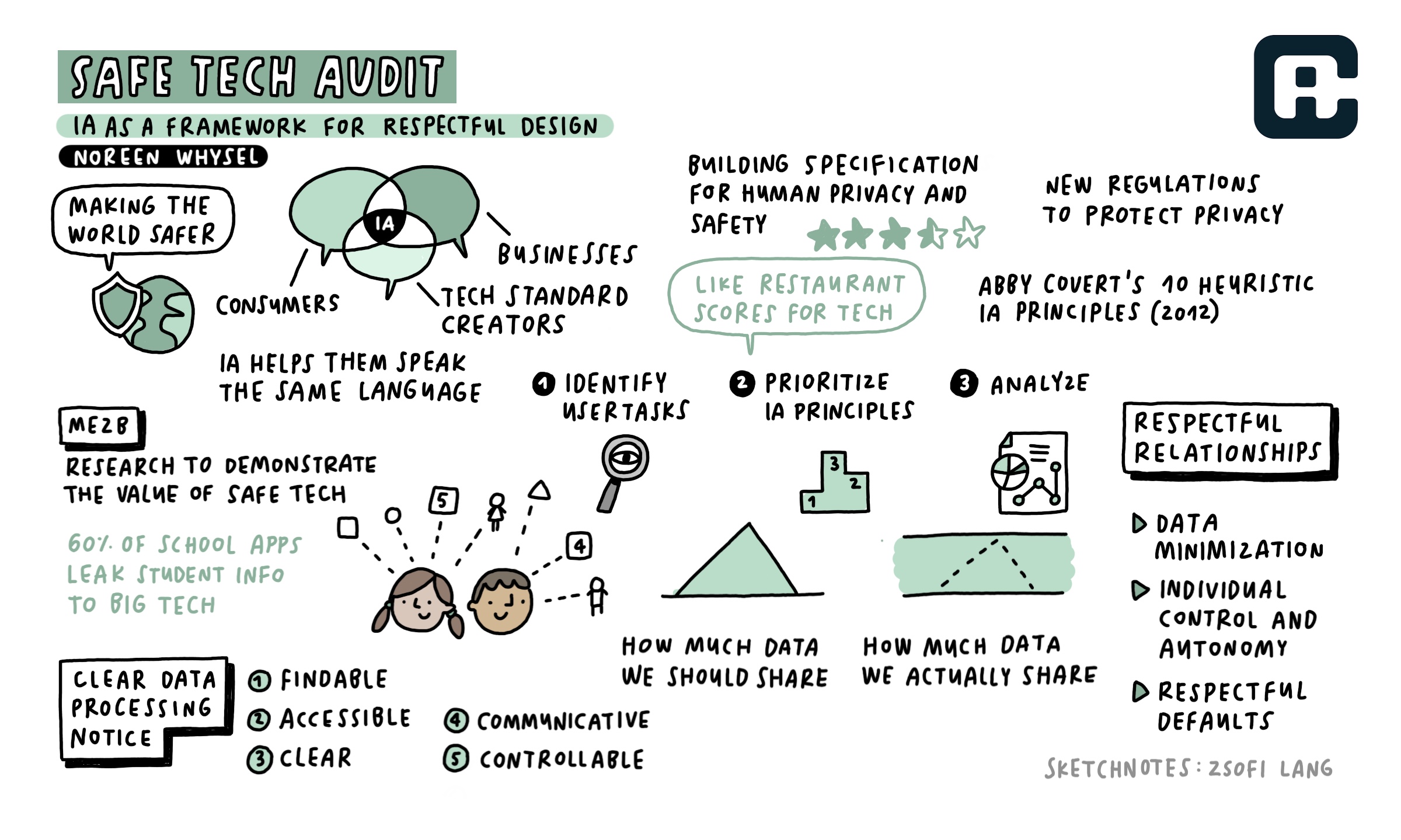
In May, I was invited to speak at UX Lisbon, on Preventing Digital Harm in Online Spaces. At the main event, I presented the Internet Safety Lab’s framework for evaluating the relationship that digital technologies have with consumers and what we can do as designers to mitigate the digital harms and dark patterns that could potentially violate that relationship. You can download my presentation below.
On the first day of the event, I ran a half-day, pre-conference workshop titled “Designing Effective Search Strategies” in which I introduced a new framework using observation as a powerful tool to understand site search behavior. To explore this, we broke into seven groups and worked on creating empathy maps, search personas (including group personas) and mapping the user journey toward information discovery. As a takeaway, all participants received a toolkit for crafting these artifacts and a step-by-step process to enhance product search. We got to eat yummy Portuguese snacks, too!





“Noreen … made the interesting point that if we build an accessible design we’ll also be solving many search problems.”
— UXLx: UX Lisbon
What a wonderful event, interesting and welcoming people and an absolutely unforgettable time!
I am available to teach your team mitigating digital harm as a solo facilitator or how to understand user search behavior, solo or with my colleagues at the Information Architecture Gateway. Let me know if we can help.
Read the UXLX Write-ups at Medium:

